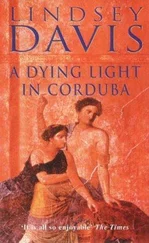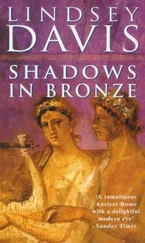Let them flee. Flight was for fools. Not Nonius.
He understood at last. Fabulous. For him, this was the best opportunity ever.
Bracing himself, Nonius went out into those streets, where anxious escapees were following each other full of uncertainty, whereas he was full of purpose. Trying to dodge the battering lapilli, the crowd hurried frantically yet seemed to have little idea where they were going. Wailing and selfishly trying to save themselves, while getting in his way, people had no idea. Nonius had to use his chance. Some wore cushions tied on their heads, or were huddled in cloaks, too muffled up and much too scared to see where they were running – and nor did they notice what Nonius was doing. As if he had been born for it, Nonius was making the most of this situation. He worked with joy in his heart.
A middle-aged woman was struggling with her doorlock. ‘Oh madam, let me help with that!’ insisted Nonius, shoving her on her way in a fluster, while palming her latch lifter.
A man left his keys in their usual hiding place, under a plant pot. Nonius observed. After the householder scurried off, Nonius retrieved them.
A pregnant woman had trouble carrying treasured possessions; Nonius offered to help her, seized the bag manfully – then vanished in the gloom.
A slave who had been left behind to guard a place, answered the door to Nonius’ urgent knocking. He sounded official. ‘You have to get out! Everyone has to leave now. Don’t stop for anything, run for it!’
Soon he was madly gathering silver dinnerwares, bronze household gods, gladiator figurines, coins, male and female jewelry. Glass was too fragile, more’s the pity. Bankboxes were beyond him to force, he was in too much of a hurry and had no strong tools; cupboard doors eventually gave way.
A young female slave who had been hiding in a backroom came to investigate the noise. She had the bad luck to run into Nonius, to his delight. Already terrified by the eruption, she could not escape. ‘Well, hello there, darling! ’ Her lucky day.
It wasn’t rape.
Rapists always say that though.
She really wanted it. She was a slut, a slave, she made me do it. She shouldn’t have screamed. She was screaming because she enjoyed it. She knew I couldn’t help myself. It wasn’t rape.
Hades. This was the most exciting event in this town. Nonius was more thrilled than he had ever been. The spoils were his. All of it, everything. What else could anyone expect?
In Herculaneum, the painter’s wife attempts to cope.
It was one of the twins who first noticed that something was happening. Varius, the two-year-old boy, had gone out of doors, crying, after being told for the umpteenth time he could not have any more nut-custard, because there was no more. There would be none until Marciana brought money home, whenever that would be. Ollia was reasonably certain Larius would send something, yet since he had once absconded without warning, she never felt entirely secure. She kept an old cooking pot of coins, buried in the garden, a bit of money collected in better times and hoarded, in case she was suddenly destitute.
Those had been hard years for her, when Larius was in Britain. On her own, she’d had to scrape a living. When she could, she took in other people’s children to mind, but most folk around here had families for that. She did mending. Some women spun wool, a Campanian cottage industry but Ollia, who grew up in Rome, had never been taught. Patching tunics or strengthening their necks where seams often tore was tedious and only brought in a pittance.
In summer she could get horrible temporary work serving in a bar, or helping out in kitchens as extra banquet staff when the rich descended on their holiday homes, but then she had to find somewhere to park her own infants, who resented it and played up. She hated having to plead, the risk of being fondled by men she despised, the hostility from others who were equally desperate for the work. She missed her children.
Larius did return, with money, but then she had to fight down her anger against him. He wasn’t naïve; he must have realised, when he left, what his absence would mean. Ollia had been furious. When he turned up again, she could so easily have sent him packing, but she had to think about their children. She had to pretend.
Things were better now. She was here while most of the time he worked away in Pompeii, but they counted themselves a family. In some marriages separation is a good idea. Larius had always been a one for ideas. Their children, who only saw him when he came jauntily bearing presents, adored him, never understanding his faults. They saw their mother all the time and each one had her measure, so her role was more difficult. Plus the struggle to look after them was every day and unrelenting.
Angrily she called Varius back. Screaming no, he ran to hide. She left him to it.
He was more of a handful than any of her others, a defiant little tyrant, but she knew where he would be. He always crawled into the hencoop. He would come to no harm there. When enough time had passed for him to calm down and start to feel he was missing things, Ollia would waddle out to fetch him. She and her toddler would have a little chat as usual – he smelling of poultry shit, whimpering and hiccupping, while she too settled down as she cuddled him. She would sigh, and maybe shed a tear or two herself. Holding her hand, he would then come indoors meekly.
She was tired. It was still barely noon, yet she felt she had been on her feet all day. Sultry weather was not helping. She knew she was expecting again. If it was more twins, she would kill herself. Maybe she needn’t bother: nature would do it. Her mother had carried triplets once. They all died in the birth, including her mother.
No, it mustn’t happen to her. Somebody had to look after these. She had to take care of herself, make sure she was always here for them.
She liked children, fortunately. Hers, with their dark curls and attractive features, were generally a pleasure. They had good times together, at least when there was enough to eat and none of them were sickly. If Ollia had to choose the memory she most cherished, she would pick a lazy day when she took them along the coast to Oplontis for a picnic, sat on the beach there, gazing out to sea. In her mind, this scene took place when Larius was away. It was just her and them. One child lolling against her, the others playing quietly. The blue of the sea meeting the uniform blue of the Neapolis sky, while the hot sun made everyone drowsy. The scent of newly landed octopus cooking on skewers over a fire right there on the shore at sunset. Friends she had known since before she was married, who treated her like family.
The fisherman, Vitalis, her old flame.
Would he have been a better choice? It was too late now, and Ollia had enough folk wisdom to know you should never waste time on regret, not for a man. Well, bloody hell, Ollia; not that one!
Vitalis had never married. A fool might imagine the bronzed, muscular lump was pining for her, but Ollia was too wise to think it. More likely he remained alone because other girls had been wary of his roving eye and, let’s face it, his laziness. When his father and then his uncle died, he took over their fishing boat but he never changed. It was a hard life, so not ideal for Vitalis. He would never put himself out unless he had to, yet he seemed surprised when he then did badly.
Ollia was not surprised at all. Long ago she had palled up with his mother, two wise women shaking their heads over him.
When Larius left her that time, when he went off to Britain without saying a word, Ollia could have had her chance with the fisherboy, She was too taken up with little Marciana and her newborn twins, so she never did anything about it. Nor did Vitalis. His inaction was not due to respect for her married status, nor fear of the burden of children, but just because Vitalis never did anything about anything.
Читать дальше












